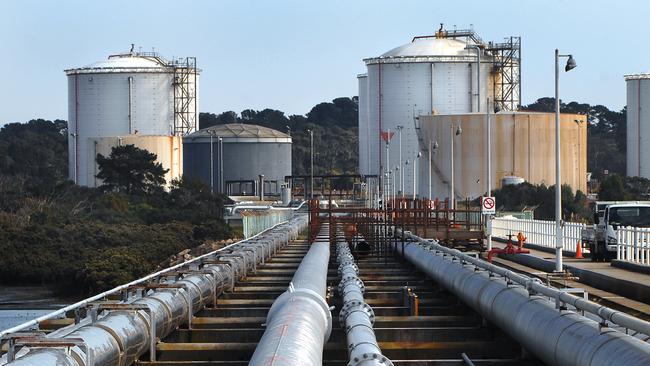
What does the nation do when the resource minister of a major state tells at best a half truth and at worst grossly misleads? At stake is the price and quantity of gas the nation has available and desperately needed water for farmers.
The federal Minister for energy Angus Taylor wants Victoria to remove the bans on the development of its vast on shore gas reserves. Victoria’s resources minister is Jaclyn Symes and she also doubles as minister for regional development and agriculture.
She is quoted in the Financial Review as signalling that she will not budge on the state’s onshore gas bans.
“We make no apologies for backing our farmers and banning fracking — a ban that we will embed in the constitution,” she says. “Australia has plenty of gas the problem is that Angus Taylor is letting most of it get exported overseas”.
READ MORE: Blackouts risk to force states’ hand on coal | Woodside, BHP in gas deal
We will leave the gas export issue for another day and concentrate on the truth about Victoria’s gas. Victoria has three types of onshore gas reserves: gas that requires fracking to extract, conventional gas that comes up under pressure and does not require fracking, and the biggest of all the vast gas reserves that are deep underground and also do not require fracking.
There is great controversy about fracking, although in both in the US and Queensland it appears to be working well. But again, Victoria’s gas reserves look big enough to relieve the nation’s shortages and bring down the domestic price of gas without fracking.
What the Victorian resources minister should have said was that while she we will not allow fracking, she we will remove the bans on the development of gas dissolved in water and conventional gas, both of which do not require fracking.
Apologies required
And with her minister for agriculture hat on, she might also apologise to the drought-stricken farmers in East Gippsland who would have had abundant water available but for the bans. And as minister for regional development she might apologise to the residents of the Latrobe Valley, who would give gained many jobs had the water and the gas been developed. Perhaps an apology to Australians who are paying unnecessarily high gas prices might also been appropriate
My regular readers are well aware of the background because I have written about the gas many times. My first commentary was back in September 2017 under the heading “Victoria’s amazing, unused gas reserve”. The most recent went under the heading “Exxon and Victorian gas: what might have been”.
The value of Exxon’s sale of Bass Strait depends in part on whether the non-fracked onshore gas continues to be banned.
Gippsland’s onshore gas is formed in deep lignite (brown coal) seams, which occur in multiple layers from about 500 metres to 1200 metres below the surface. The lignite that contains the biogenic natural gas contains over 50 per cent water. These deeper lignite seams are many times deeper than the surface aquifers.
About a decade ago, Exxon geologists from Houston completed an extensive technical review of the field, based on the thousands of drill holes drilled since the early 1900s, either looking for oil or mapping out the coal deposits for mining.
Exxon put to the Victorian government in 2013 a $400 million plan to develop the gas, which is near its treatment plant at Longford. The premier at the time was the Coalition’s Denis Napthine, who was scared of inner-city greens and banned all gas development. At the time East Gippsland farmers had plenty of water. When Daniel Andrews replaced Napthine, there was still plenty of water available to East Gippsland farmers. He continued the ban. The Andrews ban is supposed to expire next year.
What stuns me is that drought-stricken farmers in East Gippsland take their sufferings on the chin in stoic fashion even though the deep water will not affect existing aquifers close to the surface.
Maybe as agriculture minister Jaclyn Symes should go to Gippsland to meet the McNaughtons, who have been farming in East Gippsland for three generations
In 2017 the McNaughtons had a large herd of merino sheep and rams. They also grew lucerne and sometimes vegetable crops.
A test well extracted deep water so pure that the McNaughtons were able to use on his farm. It is possible that not all the water is of agricultural quality, but treating it would be simple. The Exxon plan was to follow Queensland and reward the farmers for use of their land.
Gippsland Gas has relinquished its leases in frustration. Lakes Oil also has reserves of similar gas. Victoria also has exciting conventional gas prosects, but they too are banned. Cooper Energy and Beach have discovered gas in South Australia near the Victorian border and the structure extends into Victoria but can’t be drilled. The Coalition opposition is embarrassed at their 2013 decision and says very little.
Read related topics:Energy

